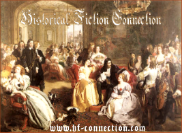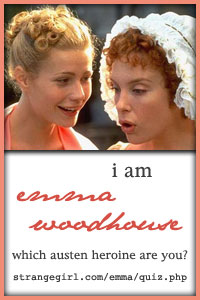Each fortnight the ladies at Historical Tapestry will post a new letter of the alphabet and you do a blog post about a work of historical fiction that has that letter:

- as the first letter in the title
- as the first letter of the author's first or last name
- the first letter of a character's first or last name
- the first letter of a place where an historical event took place
The Daughter of Time, Josephine Tey
From the back cover: Inspector Alan Grant of Scotland Yard, recuperating from a broken leg, becomes fascinated with a contemporary portrait of Richard III that bears no resemblance to the Wicked Uncle of history. Could such a sensitive, noble face actually belong to one of the world's most heinous villains - a venomous hunchback who may have killed his brother's children to make his crown secure? Or could Richard have been the victim, turned into a monster by the usurpers of England's throne? Grant determines to find out once and for all, with the help of the British Museum and an American scholar, what kind of man Richard Plantagenet really was and who killed the Little Princes in the Tower.
Being a fan of Richard III I was eager to get my hands on this book and once I did, I could not put it down. I loved it. The main character is a detective, immobilized in the hospital, and after seeing a picture of Richard III, decides he's going to try to figure out the truth in this centuries old mystery. He just can't believe that the face he sees in that portrait could be capable of murdering family members. With the help of a scholar he pours over documents, letters, etc, anything from Richard's time that would help clear up the case. I liked the methodical way that Inspector Grant went over all the evidence he could lay his hands on with a policeman's mind, looking at it without the pro or anti Richard bias found with so many scholars and historians. Of course the novel is only set within a short amount of time and it is a bit unlikely that someone could solve this mystery in such a small amount of time when historians have been pouring over it for centuries. That doesn't take away from the points that Tey offers on the subject and they should get some readers thinking. The fact that Tey wrote this novel in the 1950s, before the surge of pro-Richard societies dedicated to rehabilitating his reputation, is intriguing to me. The common opinion on Richard at that time is like what she portrays in the novel: it was accepted history that Richard was an evil hunchback who murdered his brother's sons. What made her branch out and write a novel in which she tries to prove that the long accepted idea of Richard's reputation was false?
While certainly a work of fiction (and the author most likely would have left out some facts that didn't fit into the story she was trying to tell) it brings up some very interesting questions concerning Richard III and the disappearance of his nephews. Probably the main point that she conveys is that history is always written by the victors so whether Richard killed the boys or not, the new regime would want him to be as slandered as possible to make their position more secure. This is a thoroughly enjoyable book, a quick and easy read, and a must for anyone with pro-Richardian sympathies.
You can read my full review here.























This sounds amazing- Loved your review. Perfect for this challenge, which gets us to look back at books we loved and get to post about them again. Come see my letter J...
ReplyDeleteI really enjoyed this book when I read it. It was very amusing to see the differences between how Inspector Grant was treated for a broken leg and how someone would be treated now!
ReplyDeleteThis sounds terrific, and I agree that history is usually recorded by someone with an agenda. I'll look for this in the library.
ReplyDelete